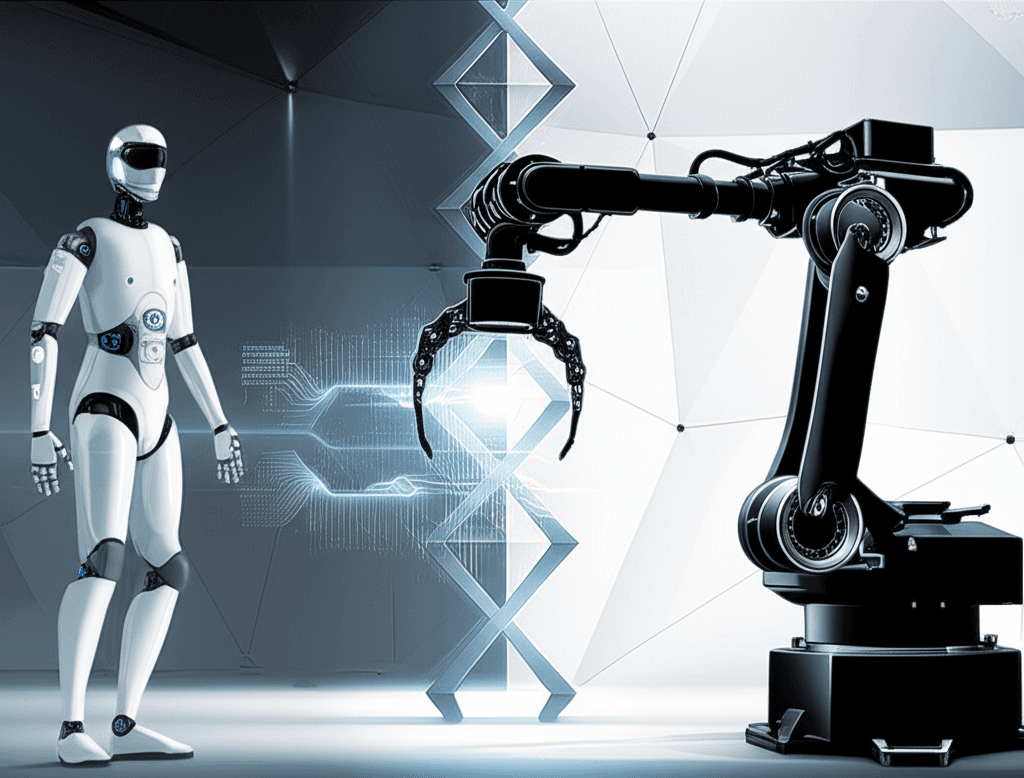Apptronik Forms Elevate Robotics, Building Superhuman Robots Beyond Humanoids
Beyond humanoids: Apptronik launches Elevate Robotics, creating powerful, purpose-built machines for demanding industrial tasks.
June 26, 2025

In a strategic pivot that acknowledges the diverse demands of industrial automation, Austin-based Apptronik has announced the formation of Elevate Robotics Inc.[1][2] This new, wholly-owned subsidiary will focus on commercializing non-humanoid robotic solutions designed for heavy-duty industrial tasks that surpass human capabilities.[1][3] While Apptronik continues to advance its flagship humanoid robot, Apollo, the launch of Elevate Robotics marks a significant expansion of the company's scope, leveraging its extensive technological foundation to create "superhuman" robots for applications where a human-like form is not a prerequisite, and may even be a limitation.[4][5] The move signals a dual-track approach for Apptronik: one that pursues the ambitious goal of general-purpose humanoid robots, and another that addresses more immediate, specialized needs in the industrial sector with purpose-built machines.[3][5]
The creation of Elevate Robotics is a direct result of Apptronik's decade-long journey in robotics, during which the company has developed over 15 distinct robotic systems, including exoskeletons, mobile manipulators, and robotic arms, in addition to its work on the Apollo humanoid.[1][3] This extensive research and development history, which includes foundational work on NASA's Valkyrie robot, has generated a wealth of technological innovations that are not exclusively applicable to humanoid platforms.[1][4] "We founded Apptronik to build general purpose robots that empower humans. On our path to realizing this mission we've developed all kinds of groundbreaking robotics technology for humanoid robots and beyond," said Jeff Cardenas, Apptronik co-founder and CEO.[1] Elevate will now commercialize these innovations in form factors designed to be bigger, faster, and stronger than their humanoid counterparts, targeting heavy-duty, industrial-scale work.[1][4] The subsidiary will operate independently, led by CEO Paul Hvass, a co-founder of Plus One Robotics, a company specializing in AI-powered vision systems for robots.[1][4][2] This leadership choice suggests a strong focus on intelligent automation and perception for Elevate's future products.
This strategic diversification allows Apptronik to capitalize on the burgeoning market for industrial automation without being solely tethered to the long-term development timeline and challenges of deploying humanoid robots. While Apollo is being tested in logistics and manufacturing environments with partners like GXO Logistics and Mercedes-Benz, the humanoid market is still in its nascent stages with limited commercial deployments.[3] Elevate, by contrast, will develop machines purpose-built for specific industrial needs where strength, speed, and endurance are the primary metrics.[6][7] These "superhuman" robots are intended for tasks that humans physically cannot perform, opening up new possibilities in demanding sectors like logistics, materials handling, and manufacturing.[6][5] While specifics about Elevate's initial product line remain under wraps, the company's website hints at mobile manipulation capabilities that significantly exceed current market offerings.[8] Job postings for the new venture seek engineers to develop an indoor navigation stack and machine learning models for perception, navigation, and manipulation, confirming a focus on sophisticated, autonomous systems.[9]
The launch of Elevate Robotics is a pragmatic acknowledgment that a one-size-fits-all approach is insufficient for the vast landscape of automation. Humanoid robots like Apollo are designed to work in environments built for people, offering versatility and the ability to perform a wide range of tasks without requiring significant infrastructure changes.[6][10] However, for many industrial applications, a non-humanoid form can be more efficient and robust.[4][6] Elevate's mission is to build robots that are not constrained by the need to mimic human anatomy, allowing for designs optimized for specific, high-impact tasks.[4][5] This strategy of leveraging a core technology platform across different robotic form factors—both humanoid and non-humanoid—positions Apptronik to address a wider spectrum of the automation market, from general-purpose assistants to specialized industrial workhorses.[1][5]
Ultimately, the formation of Elevate Robotics represents a significant maturation of Apptronik's business strategy. By creating a dedicated entity for non-humanoid industrial automation, the company can pursue parallel paths of innovation, accelerating the commercialization of its technology while continuing the ambitious, long-term development of its Apollo humanoid.[1][3] This dual focus allows Apptronik to address immediate industrial needs for powerful, purpose-built robots, while simultaneously working towards a future where general-purpose humanoids collaborate with people across a multitude of sectors.[1][10] As Elevate begins to unveil its "superhuman" robotic systems, the industrial automation industry will be watching closely to see how these new machines redefine the boundaries of robotic capabilities and impact the future of heavy-duty work.[2]